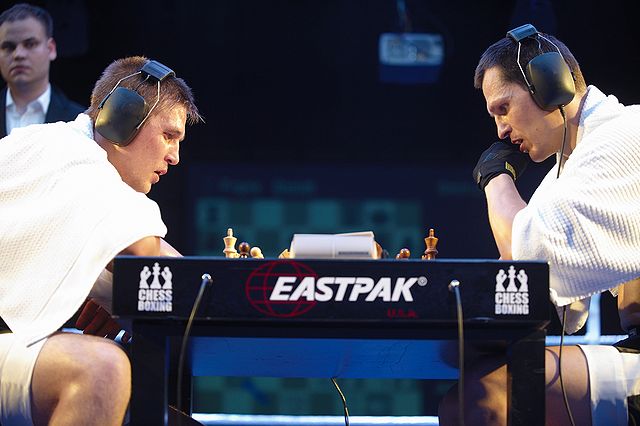Chess boxing is a unique hybrid sport that combines the mental prowess of chess with the physical intensity of boxing. The concept involves alternating rounds of chess and boxing, challenging participants to excel in both the intellectual and physical aspects of the game. Here’s a look at the science behind chess boxing and how it unleashes the mind and body:
1. Mental Stimulation:
- Chess Rounds: During the chess rounds, participants engage in intense mental activity. Chess requires strategic thinking, pattern recognition, and the ability to plan several moves ahead. The cognitive demands of chess stimulate the brain, promoting mental acuity and strategic decision-making.

2. Physical Endurance:
- Boxing Rounds: Boxing, being a physically demanding sport, requires cardiovascular endurance, strength, agility, and coordination. Participants need to maintain peak physical condition to withstand the rigors of boxing rounds.
3. Adaptability and Switching Modes:
- Transition between Rounds: The unique challenge of chess boxing lies in the participants’ ability to seamlessly transition between the mental focus required for chess and the physical intensity of boxing. This demands a high level of adaptability and the capability to switch modes rapidly.
4. Stress Management:
- Combined Stressors: Chess boxing combines the stressors of a mentally challenging game with the physical stress of a boxing match. Athletes must effectively manage stress, as elevated stress levels can impact decision-making in chess and lead to fatigue in boxing.
5. Dual Training:
- Combining Chess and Boxing Training: Chess boxing training involves a dual approach. Participants must train both in chess strategy and boxing techniques, requiring a comprehensive and well-balanced training regimen. This dual training enhances overall fitness and mental agility.
6. Strategic Planning:
- Chess Strategy and Boxing Tactics: Successful chess boxing requires participants to formulate strategic plans not only in chess but also in boxing. Planning moves and anticipating the opponent’s strategy in both disciplines are crucial for success.
7. Decision-Making Under Pressure:
- High-Pressure Environment: Chess boxing creates a high-pressure environment where athletes must make critical decisions under time constraints. This mirrors real-life scenarios where individuals often need to make decisions under pressure.
8. Enhanced Cognitive Skills:
- Chess and Cognitive Skills: Engaging in chess regularly has been associated with cognitive benefits, including improved memory, problem-solving skills, and increased IQ. The combination of chess and boxing provides a holistic approach to brain health and cognitive enhancement.
9. Balance and Coordination:
- Balancing Physical and Mental Skills: Chess boxing emphasizes the importance of balancing physical and mental skills. Participants need not only strength and endurance but also coordination, balance, and precision in their movements.
Chess boxing is not only a test of individual skills but also a fusion of two disciplines that require distinct yet complementary abilities. The science behind chess boxing lies in understanding how this unique sport challenges and enhances the mind and body, offering a comprehensive approach to physical and mental fitness.











